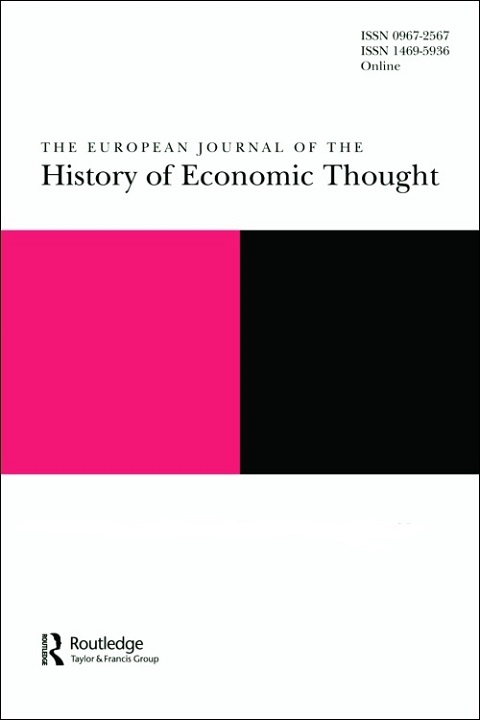
European Journal of the History of Economic Thought
Volume 17, Issue 1, Feb 2010
Pages 1-28
- DOI: 10.1080/09672560903204502
- Print ISSN: 0967-2567
- Online ISSN: 1469-5936
The valuation of decision and individual welfare: a Humean approach
Abstract
Drawing on passages in Book II of the Treatise of Human Nature (1739/40), in the Enquiry Concerning the Principles of Morals (1751), in the Dissertation on the Passions (1757), and in some of the Essays (1777), this paper is built upon Hume's distinction between three alternative valuations of an individual position: desire (which leads to action), interest, and happiness. The difficulty comes from the fact that desire does not depend on pleasure as an impression, but on the force of an idea of pleasure, based upon a belief in the realisation of the correlative impression. Typically, this belief is linked to the underlying emotional state, expressed in the degree of violence of the passions, which governs both the individual's reactivity to pleasure, and his preference for present (compared with future) pleasures. On the contrary, interest and happiness do not depend on the distortion introduced by beliefs, and are directly linked to pleasure. It is shown that the decisional valuation only coincides with interest in the case of what Hume called a ‘calm passion’, which gives birth to the greatest happiness.
Related Searches
Keywords
Subjects
Currents of Thought
Countries
Periods
- 1700-1755. Inception of Systematic Economic Analysis
- 1756-1800. Emergence of Modern Currents of Political Economy